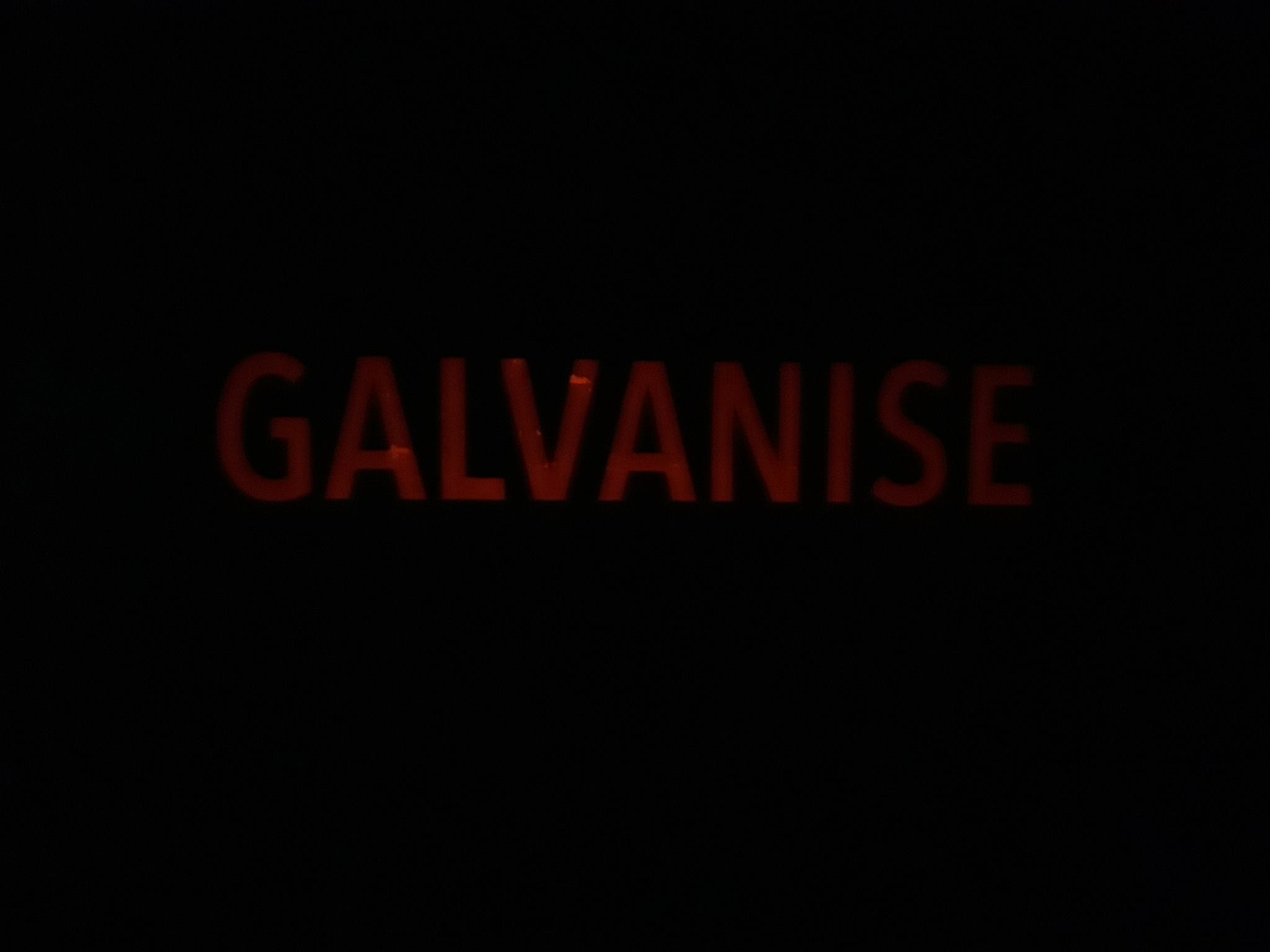Alice Birch’s ‘ Revolt. She Said. Revolt Again.’ is an radical new piece of writing which directors Lauren Tavriger and Emma Howlett have impressively brought to life in the Pilch Studio.
From the moment we enter the theatre there is a sense of scurrying energy as the cast of four (Laura Henderson Child, Lucy McIlgorm, Lucy Miles and Jamie Lucas) organise the stage. This energy carries us through a series of amusing vignettes, as well a more surreal, red-lit ‘galvanise’ section, right the way to the play’s rather abrupt conclusion.
The precision required to successfully execute this demanding four-hander is monumental, and each of the actors strikes a perfect balance between unsettling humour and sincere urgency. To my surprise, this radical work, with its conclusion that all men must be killed and society overthrown, remained extremely funny throughout. At no point did the audience feel as if we were having too much asked of us; the piece allows a reflection of patriarchal structures without a sense of being ‘guilt-tripped’.
The use of lighting is extraordinary. “I don’t think you’re listening”, says a woman standing between two disturbingly cheerful but unwavering executives, whose facelessness is emphasised by placing the actors behind white screens, visible only as sinister shadows.Particularly impressive is the first scene between Jamie Lucas and Lucy McIlgorm, where a projector casts shadows of the actors onto a large wall at the back of the room. As the power dynamics shift, the figures grow and shrink, until Lucas’ entire body is ‘obliterated’ by McIlgorm’s gigantic shadow.
Equally innovative is the use of the two white screens, which help with shadow puppetry, as well as shielding McIlgorm’s body from view as the other three actors scream abuse at her during a particularly powerful vignette. I would have liked to have seen more of the screens throughout, though it is likely that the text does not grant much flexibility for such alterations.
One part of the play which I found particularly impressive was the ‘galvanize’ section, in which the actors bounce rapidly between tiny scenes, some only seconds in length, with some overlaps and simultaneous action. It is clear that a lot of work had gone into this enormously demanding section, from both of the directors, the actors and the lighting designer Edward Saunders.
It was this section that I felt offered some of the most affecting examples of everyday sexism: the little snippets of degrading conversation we might overhear in the street, sections of political speeches, or carefully worded responses to the question ‘are you a feminist?’ I almost wish the play had ended with this section, but the monologue which cuts it off (performed spectacularly by Lucy Miles) carries its own powerful frustration.
Any criticism I could give of this play lies entirely in the text. ‘Revolt’ has a constraining pace, logic, and at times slightly baffling moments. I did not leave the theatre resolved to kill all men and overthrow society, but I did leave having enjoyed brilliant acting, skillful direction, and innovative use of lighting and space. This is one not to miss.



